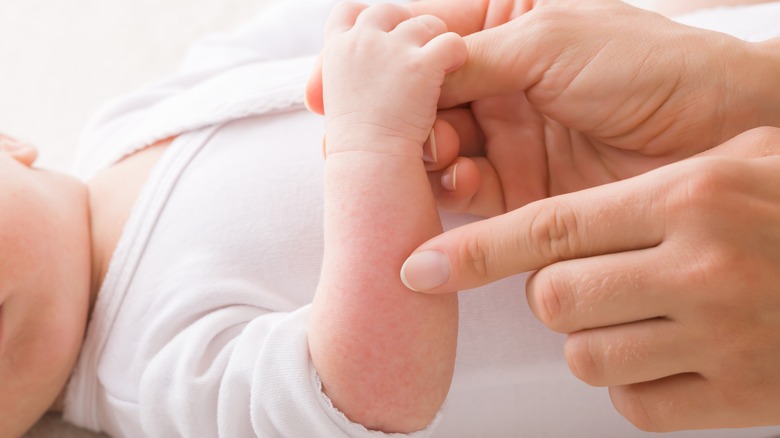Should You Cut Out Dairy When Breastfeeding?
Beyond being a beautiful and intimate way for you to bond with your baby, breastfeeding provides numerous benefits. For one, breast milk is rich in nutrients, such as protein, fat, and carbohydrates. It also contains antibodies and other immune-boosting factors that can help protect your baby from infections and illnesses, per a 2016 study published in the journal Revista da Associação Médica Brasileira. Interestingly, breastfeeding can also help reduce the risk of postpartum depression in mothers, according to a 2012 study published in the International Journal of Psychiatry in Medicine (IJPM).
Despite the many benefits, breastfeeding can be an arduous task, and knowing which foods to eat can be tricky, especially when concerning dairy products. Therefore, the question of whether dairy is safe to consume can cause you to question whether you should be eliminating dairy completely from your diet while breastfeeding. Here's what to keep in mind.
What is cow's milk protein allergy?
Casein and whey are two common proteins found in cow's milk. If your baby is sensitive to cow's milk protein, the immune system reacts to those proteins as if they were harmful invaders, explains WebMD. This can trigger an immune response that can cause a range of symptoms, such as itchiness, redness on the skin, and a rash, among others.
An allergic reaction to milk protein is commonly known as cow's milk protein allergy (CMPA), according to WebMD. In fact, a 2016 study published in the journal Clinical Pediatrics, showed the condition has an incidence rate of 2% to 7.5% in a newborn's first year. Therefore, it's vital to note that CMPA is different from lactose intolerance. The latter is caused by a deficiency in the enzyme known as lactase and results in digestive symptoms, per Johns Hopkins Medicine. If you suspect your baby may have CMPA, it's always best to speak with your doctor, who can help make an accurate diagnosis and provide appropriate treatment options.
How is the condition treated?
Ultimately, the decision to cut out dairy from your diet when breastfeeding is yours. However, it should be made after consulting with your doctor. They might recommend eliminating foods like milk, cheese, yogurt, and butter to see if your baby's symptoms improve. On the other hand, your doctor might also recommend a hypoallergenic formula, which might be easier for your baby to digest, says Drugwatch. These formulas typically contain proteins that have been broken down into smaller pieces, so they are less likely to trigger an immune response.
While on a dairy-free diet, it is important to ensure you are still getting enough calcium and other nutrients, explains WebMD. Good sources of calcium include fortified soy milk, tofu, broccoli, and almonds, among others, says Medical News Today. It is also helpful to speak with a registered dietitian to ensure your diet is well-balanced and meets your nutritional needs.



